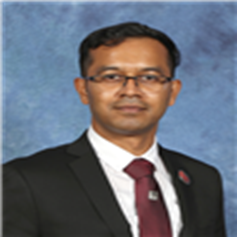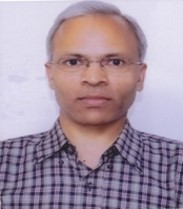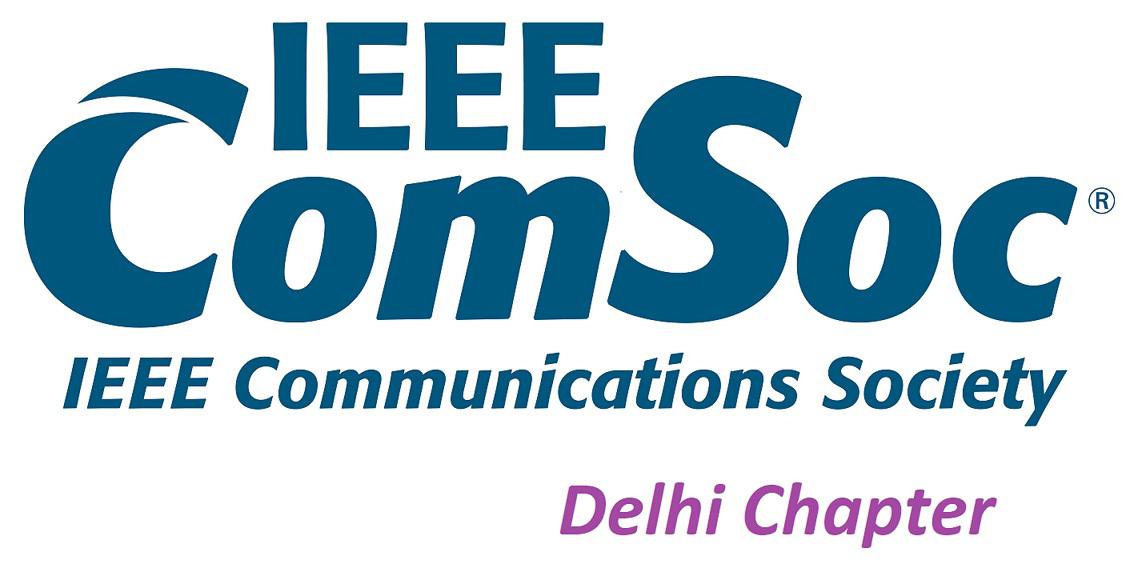
SNSFAIT 2024 proceedings published
Conference Schedule
About the International Conference
Recent advancements in computing and communication technologies have allowed the development of connected systems that depend primarily on IoT and Edge technologies. However, for the efficient adoption of connected healthcare, the security and privacy of next-generation smart healthcare systems are important challenges. Future technologies such as Blockchain and Machine Learning (ML) are pioneering system security solutions to aid in the effective rollout. In this context, this special section will concentrate on the crucial aspects of IoT security in a connected healthcare environment, which will not only benefit from cutting-edge methodological approaches but also assist in the rapid scalability and improvement of these systems. The objective is to utilise technologies like blockchain in an intelligent city IoT environment for communication, data security and trust management.
The Second International Conference on Securing Next-Generation Systems using Future Artificial Intelligence Technologies is organised with the objective of bringing together innovative scientists, professors, research scholars, students and industrial experts in the field of Next Generation Systems to a common forum.
Conference Topics
• IoT security and privacy
• Security and trust in smart city and IoT environments leveraging ultra-lightweight cryptography
• QoE/QoS in IoT/edge
• IoT applications benefit from distributed and federated learning.
• Cryptology: Theory and Applications in IoT
• Access management in connected healthcare IoT
• Detection, Protection, and Prevention in a Cyber-threat-Free IoT environment
• Simulation and performance evaluation mechanisms for IoT networks
• 5G innovations for IoTs
• ML-based IoT applications
• Blockchain-based IoT infrastructures
• Blockchain security connecting different IoT protocols
• Digital Twin for IoT systems
Publications
All the accepted papers of SNSFAIT 2024 will be published as proceedings of SNSFAIT by CEUR Workshop Proceedings indexed by Scopus and other leading databases.
For Scopus, check the indexing: https://www.scopus.com/sourceid/21100218356.
A Few selected high-quality papers will be published in Intelligent Decision Technologies (IDT), IOS Press, indexed by Scopus
|
Track-1 |
Track-2 |
Track-3 |
|
Publication in CEUR Workshop Proceedings indexed by SCOPUS |
Publication in Intelligent Decision Technologies (IOS Press) indexed by SCOPUS & ESCI |
Publication in International Journal on Web Information Systems (Emerald) indexed by SCOPUS & ESCI |
|
· IoT security and privacy · Security and trust in smart city and IoT environments leveraging ultra-lightweight cryptography · Computer Science and Applications for Defence Modelling & Simulation Domain · QoE/QoS in IoT/edge · Cryptology: Theory and Applications in IoT · Modeling, Simulation, Systems Analysis for Defence Application · Access management in connected healthcare IoT · Simulation and performance evaluation mechanisms for IoT networks · 5G innovations for IoTs · Blockchain-based IoT infrastructures · Blockchain security connecting different IoT protocols · Systems Evaluation Studies · Combat Model Development · Operations Research and Decision Support Techniques |
The scope of the journal includes, but is not limited to, the following topics:- Possible application areas are:- |
We cordially invite submissions that explore the multifaceted aspects of this stimulating field, encompassing, but not restricted to the following: · Differential Privacy: Implementing differential privacy mechanisms to anonymize individual contributions to AI models, preventing the extraction of specific information about any single user. · Homomorphic Encryption: Employing homomorphic encryption techniques to perform computations on encrypted data, allowing AI algorithms to operate on sensitive information without directly accessing it. · Federated Learning: Embracing federated learning approaches where AI models are trained across decentralized devices, ensuring that sensitive data remains on users' devices and is not transmitted to a central server. · Privacy-Preserving Machine Learning Algorithms: Utilizing machine learning algorithms designed with privacy in mind, such as federated versions of popular algorithms, to prevent the exposure of individual data points. · Tokenization and Masking: Employing tokenization and masking techniques to replace sensitive data with non-sensitive placeholders, allowing AI models to learn patterns without access to the actual private information. · Secure Multi-Party Computation (SMPC): Implementing SMPC protocols to enable multiple parties to jointly compute a function over their inputs while keeping those inputs private, a crucial aspect in collaborative AI services. · Privacy-Aware Model Training: Integrating privacy-aware training methodologies that prioritize the protection of user-specific information during the model training phase. · Consent Mechanisms and Transparency: Establishing clear consent mechanisms for users to opt-in or opt-out of data usage for AI, coupled with transparent communication about how AI processes and retains data. · Policy-Based Access Controls: Enforcing fine-grained access controls based on privacy policies, ensuring that only authorized entities have access to specific AI models or data subsets. · Data Minimization: Adopting a data minimization strategy by only collecting and retaining the minimal amount of data necessary for AI model training and inference. · Algorithmic Fairness and Bias Mitigation: Addressing algorithmic fairness concerns and biases in AI models to ensure that privacy-preserving measures do not inadvertently discriminate against certain groups. · Continuous Monitoring and Auditing: Implementing continuous monitoring and auditing mechanisms to track AI model behavior and ensure ongoing adherence to privacy-preserving principles. |
Important Dates for paper submission
Submission Deadline: 25th May 2024
Notification of Accept/Reject: 1st June 2024
Registration Deadline: 10th June 2024
Final Paper Due: 15th June 2024
Previous Speakers of SNSFAIT
 |
 |
 |
 |
 |
 |
| Prof. Manu Malek, Nokia Bell Labs, Stevens Institute of Technology, New Jersey, USA | Prof. Oscar Castillo, Tijuana Institute of Technology, Mexico | Prof. Pravin Chandra, Dean, USICT, GGSIPU, India |
Dr. Korhan Cengiz, College of Information Technology, University of Fujairah, UAE. |
Dr. E.S. Pilli, Malaviya, National Institute of Technology Jaipur, India |
Dr. Kallol Krishna Karmakar, University of Newcastle Australia |
 |
 |
 |
 |
 |
 |
| Prof. Vivek Bohara, Head, ECE Department, IIIT, Delhi, India | Dr. Preeti Mishra, Doon University Dehradun, India |
Dr. Ayoub Khan, University of Bisha, Saudi Arabia |
Prof. A.K. Singh, National Institute of Technology Kurukshetra, India |
Dr. Ali Ismail Awad, Lulea University of Technology, Sweden
|
Dr. Mohiuddin Ahmed, Edith Cowan University Joondalup, Australia |
Paper Submission
The Original unpublished Research Papers having minimum length of 10 "standard" pages (1 standard page = 2500 characters) on the topics related to the theme are invited for presentation/publication in the Conference proceedings.
- Authors need to use the uniform CEURART style for the papers. You can choose either the 1-column style as the uniform style for your proceedings. The CEURART styles can be found from the zip
- All papers must be submitted online via Microsoft CMT (Link: https://cmt3.research.microsoft.com/SNSFAIT2024)
- All submissions will be thoroughly peer-reviewed by experts based on originality, significance and clarity.
- Only papers presenting original content with novel research results or successful innovative applications will be considered for publication in the Conference proceedings.
Author agreement variants
- AUTHOR-AGREEMENT (NTP): Authors shall use this form if they included no copyrighted third party material in their paper text (or accompanying sources, datasets). This is the right variant in most cases.
- AUTHOR-AGREEMENT (TP): Authors shall use this form if they did include copyrighted third party material in their paper or accompanying material. They must then also attach a copy of the permission by the third party to use this material in the signed author agreement!
Plagiarism Policy
- The paper prior to submission should be checked for plagiarism from licensed plagiarism softwares like Turnitin/iAuthenticate etc. The similarity content should not exceed 15% (in any case either self contents or others). Further, you have to strictly implement the following ethical guidelines for publication:
- Any form of self-plagiarism or plagiarism from others' work(s) should not be there in an article.
- If any model / concept / figure / table / data / conclusive comment by any previously published work is used in your article, you should properly cite a reference to the original work.
- Also language of explaining it should not be same as language of the work from which you have adopted it.
- If you are using any copyrighted material, you should acquire prior permission from the copyright holder.
Organizing Committee
|
|
Registration Details
It is mandatory to register the accepted paper for the Conference (single registration is required per paper and only one author will be allowed to attend and give presentation during Conference )
Registration Structure
|
Fees* Category research |
E ComSoc Member/MAIT Students |
Research Scholar/ Student |
Academician / Industry |
Foreigner Research Scholar/ Student (Outside India) |
Foreigner Academician / Industry (Outside India) |
|
Conference Proceedings (CEUR) Scopus |
Rs. 2360* |
Rs. 3540* |
Rs. 4720* |
$ 150 |
$ 200 |
|
Scopus/ESCI Journals |
Rs. 5900* |
Rs. 10620* |
Rs. 11800* |
$ 350 |
$ 400 |
* Including 18% GST
Payment Transfer Details:
Bank Name: UNION BANK OF INDIA
Bank Address: Sector 22, Rohini Branch, New Delhi-110086, India
Account Name: MAHARAJA AGRASEN INSTITUTE OF TECHNOLOGY
Account Number: 394502010059875
IFSC Code: UBIN0560421
Bank Swift Code: UBININBBSBD
AD Code: 0291679
|
Email: This email address is being protected from spambots. You need JavaScript enabled to view it. |
|
Submission Link: https://cmt3.research.microsoft.com/SNSFAIT2024 |
|
Contact: Dr. Deepak Gupta (9899265660) Mr. Anupam Kumar (9999702583) |
 |
 |
 |
 |






